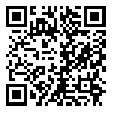This Day in Unitarian Universalist History April 8
1889 – Sir Adrian Boult was born in Chester, England. He was conductor of the City of Birmingham Orchestra, musical director of the BBC, conductor of the BBC Symphony Orchestra, and conductor of the London Philharmonic. He was an active Unitarian layman.
The post April 8 first appeared on Harvard Square Library.
Read more at: www.HarvardSquareLibrary.org – the digital library of Unitarian Universalism.


